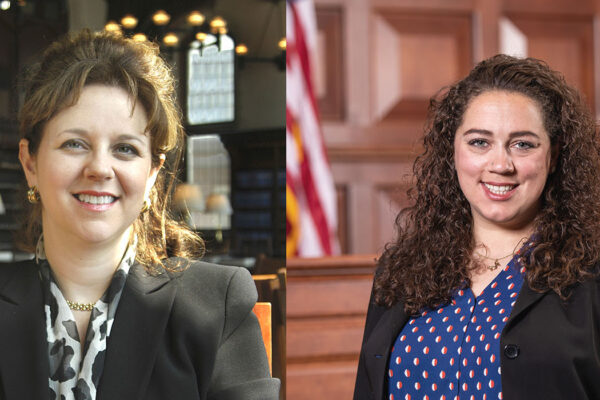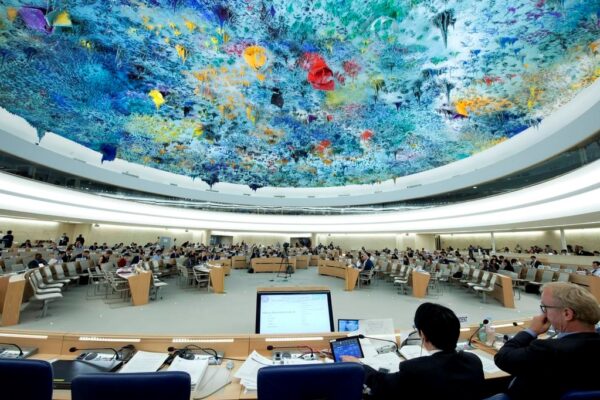A report on COVID-19 reforms convened by the Whitney R. Harris World Law Institute in the School of Law at Washington University in St. Louis, in partnership with the McDonnell International Scholars Academy, was submitted to a World Health Organization panel in preparation for a final report at a WHO meeting on pandemic preparedness.
“Global Governance: The World Health Organization (WHO) and the Need for Post-COVID-19 Reform: Addressing Challenges to Public Health and Society Through Global Collaboration” (also available here under Contributions to the Program of Work) was accepted by the WHO’s Independent Panel for Pandemic Preparedness and Response. The panel will present a final report to the 74th World Health Assembly, scheduled for May 24-June 1.
The 100-page report includes contributions from eight international researchers, including Leila Sadat, the James Carr Professor of International Criminal Law and director of the Harris Institute; Madaline George, senior fellow at the Harris Institute; and Rupa Patel, MD, associate professor of medicine in the Division of Infectious Diseases at Washington University School of Medicine.

“The Harris Institute is the perfect convener of this report because of its global reputation for high-quality work in public international law and its prior work on rule of law and global governance,” Sadat said. “With a vast network of overseas connections, the institute has become a well-respected center for international and comparative law research.
“International law establishes the key regulatory framework for addressing global challenges,” she added. “While policy and public health input is critically important to managing global health emergencies, without sufficiently robust institutional and legal structures in place, as we have seen with the COVID-19 pandemic, states will develop responses that are not well coordinated, leaving gaps that can make it much more difficult to stop the global spread of an epidemic or address other health challenges in a coordinated and effective manner.
“Legal rules developed through universal international organizations like the WHO not only create a level playing field, as all states have input into the rules, but allow for negotiation and coordination of disputes between states that may arise as the rules are applied.”
The report includes 10 recommendations and observations for the WHO to consider:
- The success and failures of certain countries in containing the virus must be placed within a broad social and political context.
- Structural obstacles to health care reform and improvement have delayed low-income nations’ ability to comply with the minimum standards for domestic health infrastructure established in International Health Regulations (IHR) Annex 1, which has in turn caused delays in the monitoring and reporting of potential global health threats.
- The development of a legally cognizable definition of “pandemic” would provide an important public health tool for the international community of countries.
- The public health emergency of international concern (PHIEC) declaration system should be reformed with a tiered alert system, as a more nuanced system would better reflect the dynamic nature of pandemics and global health. A tiered system must establish clear criteria for each stage, which in turn must be accompanied by clear operational protocols, strategies for response cooperation and financing mechanisms.
- Strong monitoring mechanisms are necessary to avoid and manage the next pandemic and to improve IHR core capacity implementation. The WHO could draw from the experiences of other treaties and international organizations.
- Reinterpretation of existing WHO provisions may be a productive way to protect global health, as substantive reform to the WHO would be beneficial but may be difficult to achieve.
- Countries should consider using the dispute settlement mechanisms in Article 75 of the WHO Constitution and Article 56 of the IHR to enforce state compliance with the obligations contained within these instruments.
- Annex 2 of the IHR, which governs when a member states’ National Focal Points (NFP) must report a potential health threat to the WHO, needs reform to more accurately and effectively detect threats to global health security.
- It is worth considering whether a new comprehensive international treaty to prepare for and address future pandemic outbreaks should be negotiated. This could be done as a self-standing regime or negotiated under the auspices of the United Nations.
- Countries should consider the negotiation of a new treaty to ensure equitable access to vaccines, medicines and diagnostics.


